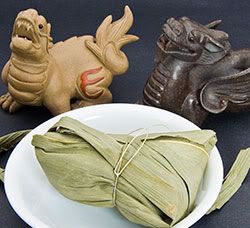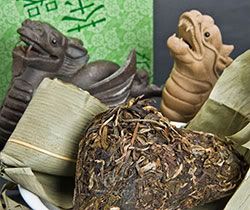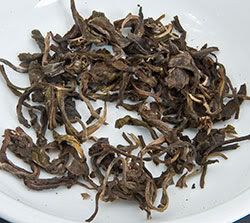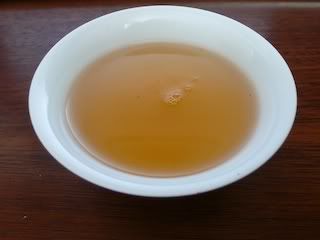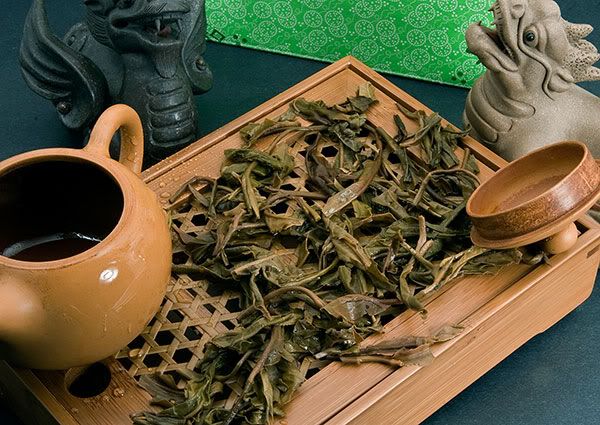OK, I have finally gotten around to trying 3 of these beautiful samples I got from Nada. First let me say that the size (32 grams), condition, and price of the samples is great ... as is of course the fact that you can buy just a sample without having to commit to a whole cake. Generally I would say all three of the following are light (but not as light as Mengku cakes) low astringency and sweet.
The usual warnings here: another taster may describe a completely different experience from mine. Newbies beware. I myself have bought all kinds of tea that someone else adored, but that struck me as mediocre and I have loved teas that others didn't care for. In short, don't place too much store on any one review.
2007 Yiwu "Yi Chang Hao"
The first infusion was sweet, smooth, buttery with a nice aftertaste. The next few turned gradually a bit fruity, and the later infusions reminded me repeatedly of a very light sencha, with the butter and vanilla aftertaste that I sometimes find in a light steamed sencha. Unusually, the first two infusions of this tea carried the biggest punch. It took me a while to learn to increase brewing times sharply for each subsequent infusion. I brewed ten infusions, the last being 5 minutes, before I called it quits. A very fine tea. Photo of spent leaves, dark color, a little red, mostly large leaf pieces, leaf stem systems, variety of leaf sizes:
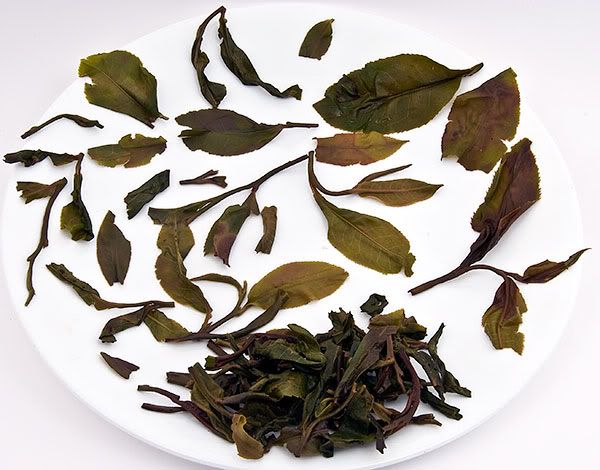 Click photo for larger image
2008 Nada Nannuo Shan "Cha Chan Yi Wei"
Click photo for larger image
2008 Nada Nannuo Shan "Cha Chan Yi Wei"
This is the cake that Nada pressed himself, as detailed in his blog,
A Felicific Life. Mine was a large, 32 oz, single piece sample that I was able easily to take apart with just my fingers. The dry leaves are beautiful. I found it to yield a light and clear liquor that was quite sweet, buttery, and a little viscous. The taste was of wood followed by mushroom and maybe a camphor finish. This is quite a nice tea, sold out now unfortunately.
2006 12 Gentlemen "Da Bai Hao"
Nada tells me that
12 Gentlemen is not a factory per se, but rather the name adopted by a group of puerh aficionados in Kunming. They oversee the picking, processing, and pressing of the bings that bear their name.
The dry leaves of my sample are quite lovely and the sample itself in excellent condition. Overall a light colored dry leaf with two tones: The light leaves are the color of plywood; dark ones, gray brown.
Liquor a dull champagne color. Started out viscous and floral, with a lot of chaqi. I got five nice infusions before it started to lose steam. Might need to up the leaf a bit in future sessions.

